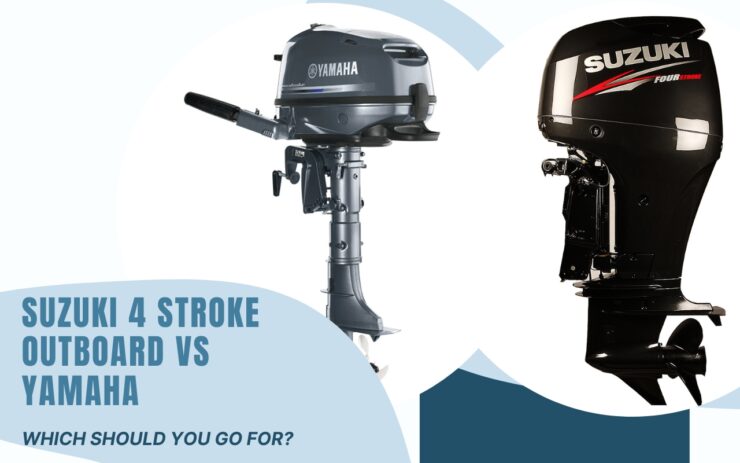Hey there, fellow boating enthusiasts! As a reviewer at KayakPaddling, I’ve had the pleasure of gathering information from owners who have experience with both Suzuki 4-stroke outboard motors and Yamaha. Let me share my honest opinion on these two popular options.
Investing in outboard motors is a serious decision, considering the significant cost involved. Unlike buying a cheap toy, you can’t just replace them easily if they don’t live up to your expectations. That’s why it’s crucial to know your options and pick the best one.
Now, let’s start with a comparison. Yamaha tends to be pricier due to its popularity, but it holds excellent resale value. On the other hand, Suzuki offers more horsepower for a relatively lower price.
Another aspect to consider is the warranty period. Suzuki provides a generous 5-year warranty, while Yamaha offers 3 years. Additionally, Yamaha boasts a larger network of dealers compared to Suzuki.
Table could not be displayed.Of course, it’s not just about the price and warranty. Performance and build quality matter too. If you want to know every little detail about these motors, keep reading!
Table of Contents
ToggleWhy Is It Important to Choose the Right Outboard Motor
When it comes to boating, your outboard motor is not just a ‘nice-to-have’; it’s the heart and soul of your vessel. It influences not just speed but also fuel efficiency, maneuverability, and overall boat performance. Choosing the wrong motor can result in a frustrating and costly boating experience.
- Speed: A motor too small will leave you crawling, whereas a too-powerful engine could risk damage to your boat.
- Fuel Efficiency: The right motor maximizes the distance you can travel on a single tank.
- Maneuverability: The motor’s size and design affect how easily you can navigate waters, particularly in tight spaces or rough conditions.
Factors to Consider in Your Choice
When evaluating Suzuki 4 Stroke Outboards and Yamaha motors, consider the following:
- Type of Boat: Fishing boats have different requirements than speedboats or pontoons.
- Water Conditions: Will you be in freshwater, saltwater, calm bays, or turbulent seas?
- Usage: Is it for leisure, sport, or work?
Key Metrics for Evaluation
Lastly, while looking at different models from these manufacturers, keep these metrics in mind:
- Horsepower (HP): General indicator of power and speed.
- Displacement: The engine’s size, which impacts torque and fuel consumption.
- Weight: A lighter engine will usually be easier to handle but might compromise on durability.
Outboard Showdown: Suzuki Marine vs Yamaha Motors

Even 10 to 20 years ago, Yamaha was the only company that sold top-end outboard engines. But Suzuki has caught up, and their rivalry has gotten more intense than ever.
As a result, nowadays, you can see more and more Suzuki outboards in any marina.
So, which one is the best? Or rather which one gives more performance for the money? Like Sea Ray vs. Bayliner, you can’t really tell which is better without knowing them.
That’s why we’ve come forward and made a short table for you.
| Features: | Suzuki Outboards | Yamaha Outboards |
| Price: | Fairly Cheaper | Expensive |
| Resale Value: | Low | High |
| Warranty Period: | Year 1-3: Factory Warranty Year 4-5: Dealership Warranty |
3 Years of Factory & Dealership Warranty |
| Availability: | Less | More |
| Access to Dealership: | Hard | Easy |
| Build Quality: | Superb | Great |
| Top Speed: | 45-55 MPH | 50-65 MPH |
| Life Expectancy: | 2000 – 3000+ hours | 1500 – 3000+ hours |
These should be enough to give you a first impression. So, which one are you liking more?
Suzuki Marine vs Yamaha Motors: Detailed Comparison
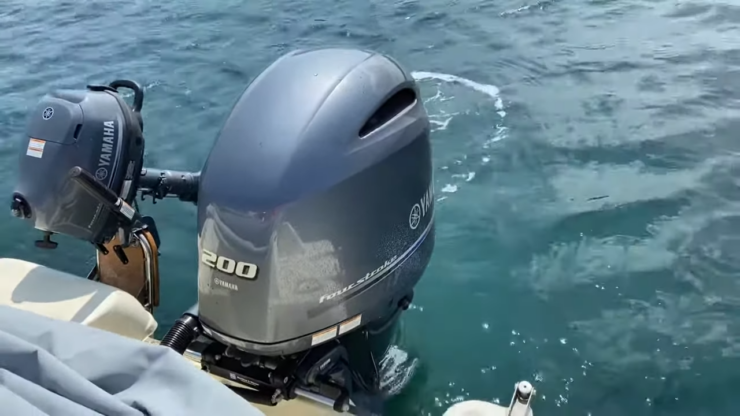
If you still haven’t made a choice, that’s absolutely fine. Because we’re about to head into a more thorough discussion about all of these features.
So, stick with us till the end.
Price Point
Price range is the first and in most cases, the only category that people care about. A high-end outboard can cost more than 20 thousand US Dollars.
So, for a hobby, this price is more than enough to make you think twice.
But you’re not that out of luck. Well, in a sense. Because Suzuki offers great outboards for a reasonably cheaper price. They have been trying to impress customers for a long time.
And quite frankly, most Suzuki users are extremely happy and brand-loyal. Also, in the Suzuki line-up, you can get outboards with more horsepower for a cheaper price.
For example, a 250 HP Suzuki motor will always be faster than a 200 HP Yamaha. Since they are almost all priced the same, it’s up to you.
On the other hand, due to being popular, Yamaha outboards are really expensive. If you go to a marina, you’ll see that at least 6 out of 10 motors are Yamaha motors.
So, if you want to join the trend, you can always go ahead and buy a Yamaha outboard. They might be expensive but they do offer top-of-the-line performances as well.
Winner: Suzuki takes the crown in this category.
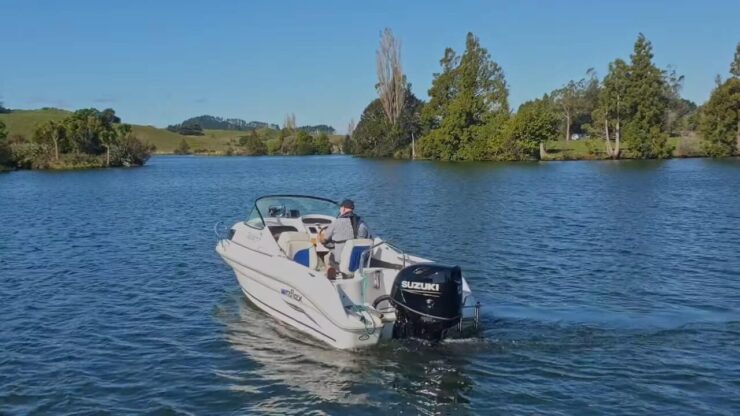
Resale Value
After the price point, the next thing that comes up is the resale value. Which outboard gives you the best resale value?
Well, the answer is pretty simple. The most popular one will sell faster at a better price. So, if we’re talking about resale value, the Yamaha wins by a long shot.
Since Yamaha has popularity, you’ll get a better price as well. Also, Yamaha dealerships are everywhere and they can even solve Yamaha 300 outboard issues. That’s why it’s easier to keep a Yamaha in pristine condition.
However, that’s not all of it. For the last couple of years, Suzuki has been showing great resolve and offering prices you can’t ignore. That’s why, nowadays, you can see more Suzuki motors than before.
So, even though their resale value was low before, it’s getting higher. But this still may seem like a risk you may not want to take.
Winner: Yamaha levels the competition.
Warranty Period
If you’ve come this far, you’re probably facing a dilemma. Suzuki is cheaper in the same performance range but Yamaha has greater resale value.
But there’s a warranty period to consider. This matters a lot since we’re talking about a lot of money here.
In terms of warranty, Suzuki has always offered more. A standard Suzuki outboard engine has 5 years of total warranty. But only the first 3 years will be covered by Suzuki. Then the Suzuki dealership will cover the 4th & 5th years.
On the other hand, Yamaha only offers 3 Years of warranty for 4 stroke outboards. This is both a service and a dealership warranty.
Winner: Suzuki takes back the lead.
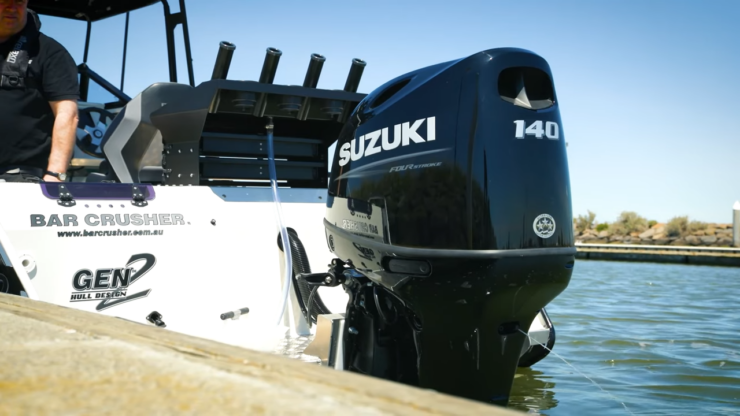
Availability & Access to Dealership
You can’t just buy a boat and be done with it. There’s a lot of maintenance to do and it’s quite impossible without a dealership.
On top of that, Suzuki outboards also aren’t always available in all states. Their presence has increased but their availability is still poor.
On the contrary, Yamaha dealerships are everywhere and can be found easily. There are 100 Yamaha dealerships to only 8 Suzuki dealerships.
If you’ve come this far and really been liking Suzuki, don’t be disappointed. By taking proper care, you can keep your outboard engine brand new.
Winner: Yamaha Motors levels it again.
Build Quality, Top Speed & Life Expectancy
With price and availability covered, let’s talk about build quality and top speed. There’s also life expectancy to consider.
First up, Yamaha’s build quality is very impressive. They’re extremely reliable as well. To top that off, Yamaha outboards have a higher top speed of 50 to 65 MPH.
On the other hand, the Suzuki outboards also have superb build quality. Also, Suzuki engines rarely need repair.
But in the top-speed category, they are just decent but not the best. Usually, a high-end Suzuki outboard can reach 45 to 55 MPH. But it can be improved by using good props with any Suzuki outboard.
Finally in terms of life expectancy, with great care, both of them can last up to 3000 hours and more.
Winner: Yamaha Motors scores the determiner and wins.
Tailoring to Your Needs
Your choice between Suzuki and Yamaha should be influenced by your specific boating needs. If you’re looking for an outboard motor for a fishing boat that will be used primarily in calm waters, Suzuki’s fuel efficiency might be more attractive. On the other hand, if you’re into water sports and need rapid acceleration and higher top speeds, Yamaha’s broader performance range would be beneficial.
- Leisure Boating: Suzuki’s fuel efficiency and reliability are key selling points.
- Water Sports or Offshore Cruising: Yamaha’s performance and durability can be deciding factors.
- Professional Use: Consider the total cost of ownership and reliability, where both brands have strong offerings.
FAQs
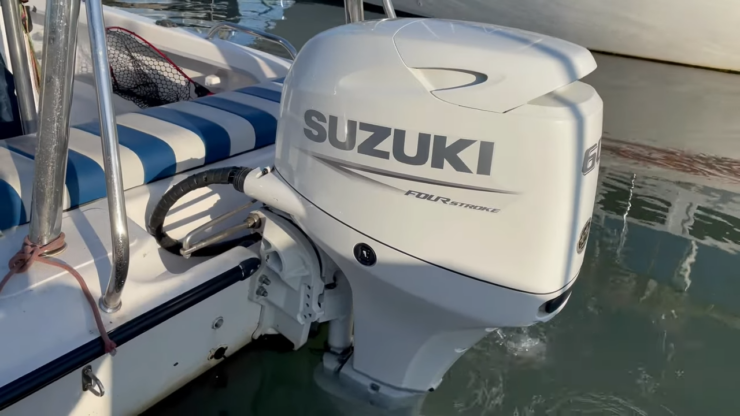
How do Suzuki and Yamaha outboard motors fare in terms of noise level?
While the noise levels can vary depending on the specific model and horsepower, generally speaking, both Suzuki and Yamaha outboard motors are known for their quiet operation.
Yamaha engines often employ noise reduction technologies to provide a smoother ride. Suzuki also prioritizes quiet operation and often performs well in sound tests. Always consider checking the decibel levels for the specific models you are interested in.
Are there specific models from Suzuki and Yamaha that are better suited for saltwater conditions?
Both Suzuki and Yamaha offer outboard motors designed to withstand the harsh conditions of saltwater usage. Yamaha’s Saltwater Series, for example, features engines that are corrosion-resistant and optimized for saltwater use.
Suzuki’s “Suzuki Saltwater Series” also focuses on corrosion resistance and features motors with specialized cooling systems. It’s essential to read the specifications and consult with the dealership for the best options for saltwater boating.
Can I expect fuel-saving technologies in both Suzuki and Yamaha outboard motors?
Yes, both brands are invested in providing fuel-efficient motors. Yamaha often employs technologies like Variable Trolling RPM Switch and Lean Burn Control System.
Suzuki also incorporates its own set of fuel-efficient technologies, such as Lean Burn Control and Battery-less Electronic Fuel Injection. These technologies aim to provide a more fuel-efficient operation, which can save you money in the long run.
How easy is it to find spare parts for Suzuki and Yamaha outboards?
Yamaha, with its extensive network of dealerships, generally offers easier access to spare parts.
Suzuki, while expanding its presence, still has fewer dealerships, which might make finding specific parts a bit more challenging. However, both brands have reliable customer service, and many parts can also be ordered online.
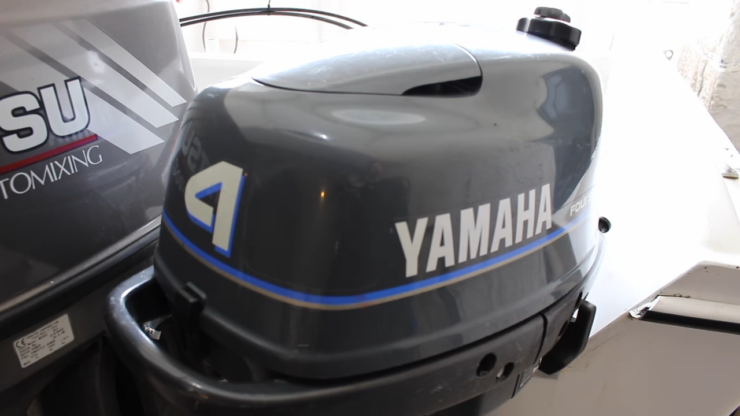
Do Suzuki and Yamaha offer outboard motors that are easy to install and remove for transport?
Both brands offer a range of outboards that are user-friendly when it comes to installation and removal. However, the ease of this process can often depend on the specific model and its horsepower.
Lower horsepower engines are generally easier to manage in this regard. Always consult with the dealership or manufacturer for guidance on installation and removal procedures for the specific model you’re interested in.
How do Suzuki and Yamaha outboards perform in terms of emissions and environmental impact?
Both Suzuki and Yamaha take environmental considerations seriously. Yamaha often incorporates technologies to minimize emissions and meet stringent environmental standards.
Suzuki also aims for cleaner emissions with its four-stroke engines and has models that comply with EPA standards. Before making a purchase, it’s wise to consult the specifications to confirm that the engine meets the environmental guidelines you’re concerned about.
Final Words
That was everything we could gather on Suzuki 4-stroke outboard vs Yamaha. Hopefully, now you have a better clarification about both of these amazing motors.
Finally, good luck with the purchase!
I’m Liam Jackson, the proud owner and driving force behind KayakPaddling.net. Born somewhere in the expansive beauty of the United States, I’ve nurtured a lifelong passion for kayaking and fishing that has led me to explore the far corners of our nation’s waterways.
Related Posts:
- 15 Best Baitcasting Reel Under $100 2024 - Improve…
- 17 Best Trolling Reels 2024 - Enjoy your Fishing Adventure
- 16 Best Kayak For Beginners 2024 - Kayaking Adventure Gear
- Heavy Duty Fishing: 11 Best Rods And Reels For Big Fish 2024
- 11 Best Prop For Suzuki DF115 2024: Keeps Outboard…
- 16 Best Kayak Fishing Paddles 2024 - Affordable Fishing Gear

